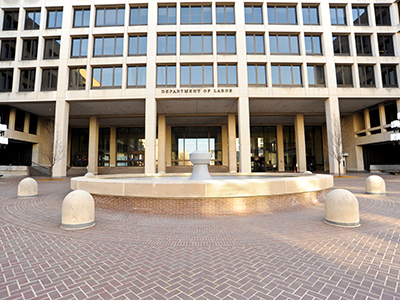
Members of the Fair Labor Standards Legislation Committee of the American Bar Association’s Section of Labor and Employment Law recently met. The meeting includes employer and employee advocates, as well as government officials. The meeting often highlights not only the present status of regulations, policy and pending litigation but also provides a window into coming trends that may be important for employers. We highlight a few takeaways.
Government Initiatives are Not Slowing Down.
The meeting featured the senior officials from the Department of Labor, Solicitor of Labor Patricia Smith and the EEOC, General Counsel David Lopez. Their remarks signaled that governmental regulatory and enforcement priorities will remain at the forefront of the President’s domestic agenda.
Solicitor of Labor, Patricia Smith, highlighted a number of key priorities of the Department of Labor’s aggressive regulatory agenda. One priority is finalizing the rules for implementing the President’s Fair Pay and Safe Workplaces initiative arising out of Executive Order No. 13673. The proposed rule would require federal contractors with more than $500,000 in contracts to report their labor law violations for the preceding three years. The government’s rhetoric around the proposal has taken a marked change. Initially billed as an initiative to bring the hammer down on contractors who violate the law, Smith downplayed the proposal as merely giving contractors guidance on how they can comply with the existing regulations requiring that they be “responsible” contractors Other priorities include the final regulations implementing overtime changes, which might be announced as early as June of this year, bringing certain investment advisors into the fiduciary regulatory fold under ERISA, and tightening regulation of silica in workplaces under the OSH Act.
According to EEOC General Counsel Lopez, the EEOC remains committed to pushing its aggressive enforcement agenda. A chief focus of the EEOC is its attack of arbitration agreements. Lopez noted that the Agency was proud of its result in EEOC v. Doherty Enterprises, Inc. 2015 WL 5118067, where the District Court for the Southern District of Florida denied a motion to dismiss the EEOC’s Section 707(a) claim alleging that an arbitration agreement including Title VII claims constituted a pattern and practice of “resistance” under Title VII because it deterred employees from filing charges. In addition, the agency will also emphasize investigating and filing systemic discrimination cases as a means to enhance recoveries to larger groups.
Crystal Balls on Duties Test Changes.
One of the biggest questions buzzing about the meeting was whether DOL will change the duties test in the final overtime rule. As the rule is in the comment phase, Solicitor Smith could not comment on whether the test will change. There was broad consensus among practitioners at the meeting that DOL will adopt the California duties test that requires that employees spend more than 50% of their working time performing exempt duties in order to be considered exempt. Stay tuned.
Independent Contractor and Joint Employment in Emerging Industries’ Employment Models
Issues relating to the gig and disruptive economy made for lively discussions. Solicitor Smith reported that the government is trying to come to grips with emerging workplace models and was aware of the “third way” proposals where workers would be considered employees for limited purposes. Smith did not reject these models out of hand as noncompliant. Rather, she expressed concern as to whether these were “truly” new economic models or “temporary agencies with an app.” She expressed skepticism about some employer groups’ calls for a regulatory time-out. Indeed, the Department’s actions indicate otherwise as Smith championed DOL’s recent guidance on independent contractor and joint employment issues, noting that DOL intended the guidance to provide greater direction to investigators to look more closely at these relationships.
State Law Battlegrounds Equal Pay Issues
Employee advocates confirmed that they are planning on bringing cases based on the new equal pay laws passed in California and New York. This confirms that employers are well advised to make sure their pay practices comply with these new laws.

